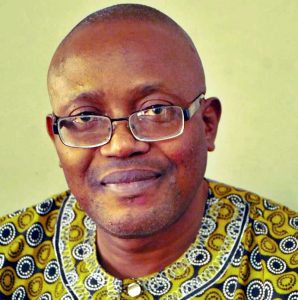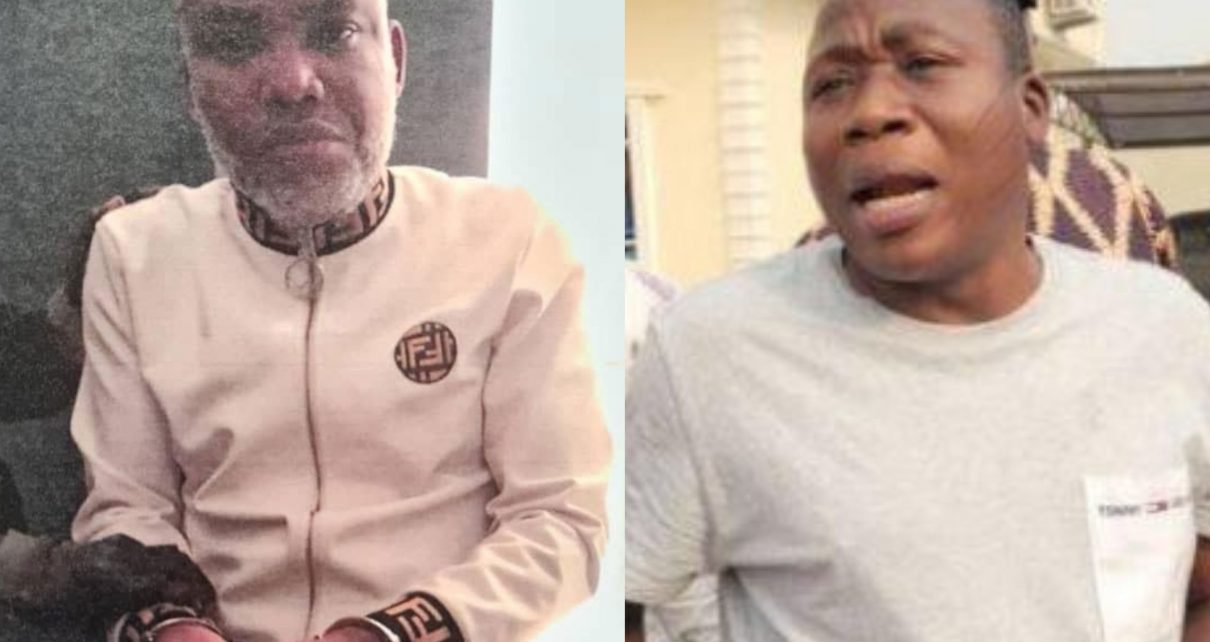
BRITONS HUGGED THEMSELVES and celebrated Monday, July 19, 2021 “Freedom Day” as the eclectic Boris Johnson government eased COVID-19 restrictions. That day, a dark sturdy man with tribal marks was led away from the Cadjèhoun Airport in Cotonou, Benin Republic.
He had lost his freedom, and an uncertain future awaited him. The arrest or capture of Sunday Adeyemo, alias Sunday Igboho, led to a tussle among the Benin Republic authorities, the Nigerian Government that saw him as a prized trophy, and his lawyers and supporters who want him freed to continue his journey to Germany.
It was Sallah eve and supporters of the Buhari administration who hail his skewed sense of nationalism, celebrated this human ‘gift’ at a public holiday period which despite the severe pains of economic deprivation and unprecedented insecurity, promised to be a time to feast and drink.
Usually in short supply at festivals is common sense, and this was no exception. Otherwise, revellers celebrating the arrest of Igboho should have realised that it would be no solution to the slide into disintegration that threatens our beloved country as the political elites have viciously mismanaged our ethno-religious, political and cultural diversity.
Igboho is a product of the frightening inability and failure of the Muhammadu Buhari administration to protect lives and property, and the resultant resort of the victims to self-help. Ironically, the Nigerian Ambassador in Benin Republic, retired Lieutenant-General Tukur Buratai who is prancing that country to get Igboho extradited, is the same man who as Chief of Army Staff between July 2015 and January 2021, could not protect Nigerians from attacks by terrorists and bandits. The National Assembly had to join other Nigerians to get him removed from office for incompetence, only to be rewarded with an ambassadorial posting.
Igboho is not the only prized dissident the Buhari group had been after. On June 29, 2021, it effected an extraordinary rendition of Nnamdi Kanu, the leader of the Indigenous Peoples of Biafra, IPOB, from Kenya. Kanu claimed he was abducted in Nairobi and tortured for a week before being bundled to Nigeria.
Both men had their homes invaded by heavily armed Nigerian security forces who killed and maimed people found on their premises. So clearly, the aim was not to bring them to justice; the modus operandi seemed to be their physical elimination.
I am not sure any rational human being would blame them for subsequently putting a distance between themselves and their dear native land. In Nigeria, Igboho and Kanu would be like rats trying to make a case in a gathering of cats; both men face an uncertain future, but so do their captors, fellow Nigerians and the country itself.
In South Africa, the then ruling White minority regime was quite afraid of the growing demand for Black majority rule. Most Whites were convinced that they could be wiped out. Then, they uncovered irrefutable evidence of a plot to overthrow the government by force of arms.
They arrested the brains behind the plot, recovered documents and arms and gathered credible witnesses. With these, between October 9, 1963 and June 12, 1964, they put the suspects on trial in what became known as the Rivonia Trial. The state demanded the death sentence.
The evidence was overwhelming and indisputable; so despite the death sentence that awaited them, the nine suspects saw no need putting up a defence. In mentally preparing themselves for the death sentence, they picked one of them, Nelson Mandela, to speak for them stating for posterity why they decided to embark on armed struggle.
In his four-hour submission which came to be known as the “I Am Prepared To Die” speech, Mandela famously declared: “During my lifetime I have dedicated myself to this struggle of the African people. I have fought against White domination, and I have fought against Black domination. I have cherished the ideal of a democratic and free society in which all persons live together in harmony and with equal opportunities. It is an ideal which I hope to live for and to achieve. But if needs be, it is an ideal for which I am prepared to die.”
However, the White establishment thought wisely that while it would be easy to hang the men, a time might come when they would need credible people with whom to negotiate an agreement and save the country from mindless massacres. So rather than the death penalty, it imposed life imprisonment. A quarter of a century later, when violence peaked and it seemed there was no way out of a likely genocide, the Apartheid regime reached out to Mandela and his colleagues, and the country worked its way towards a negotiated settlement.
Turkey by 1999 had witnessed a 14-year armed uprising by the outlawed Kurdish Workers’ Party, PKK which demanded the creation of a Kurdish homeland in south-eastern Turkey. By that time, some 30,000 Turks had been killed in the conflict.
Then the Turkish National Intelligence Service and the American Central Intelligence Agency, CIA, in February 1999, intercepted the PKK leader, Abdullah Ocalan, in the streets of Nairobi, Kenya-where Nnamdi Kanu was abducted 22 years later – while being escorted by diplomats from the Greek ambassador’s residence to the airport.
The extraordinary rendition of Ocalan threw Turkey into days of ecstasy. The case against Ocalan was air tight; he had established the PKK in 1978, built it into a formidable armed group which began a bloody secessionist war in 1984 and led the rebel forces until his capture.
But rather than sentence Ocalan to death and send him to the hangman, the Turkish authorities gave him a life sentence. When the Turkish government thought the best way out of the civil war was to negotiate with the Kurds, they went to Ocalan in prison, and he secured a ceasefire in the country, leading to peace talks.
East Timor was a Portuguese colony until 1975 when revolt by the populace forced the colonialists to leave. However, in December 1975, neigbouring Indonesia invaded East Timor and annexed it as a province. This resulted in a bloody armed resistance by the Armed Forces for the National Liberation of East Timor led by Xanana Gusmão. In 1992 Gusmão was captured, but rather than kill him, the Indonesians sent him to prison.
When seven years later, Indonesia needed a ceasefire and political settlement, it reached out to the Gusmão. Eventually, independence was agreed and in the April 2002 elections, the ‘terrorist’ Gusmão was elected East Timor’s founding President.
Only fools rejoice at the prospect of eliminating their perceived enemies because your worst enemy might become your saviour; Nnamdi Kanu and Sunday Igboho might turn out to be the very persons needed to negotiate Nigeria out of strife and disintegration.
- Owei Lakemfa is a journalist, activist, and socio-political critic



